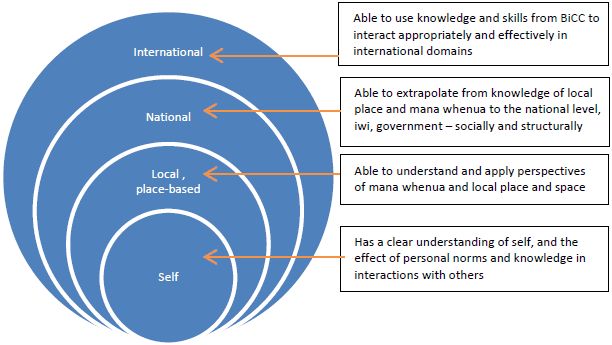Engaging and understanding both New Zealand cultures
Having bicultural confidence develops awareness and the ability to relate to different ideas. Students will learn how to co-operate with both cultures with confidence, understanding the different customs associated with the two cultures and combining them into their work when needed. This skill also builds understanding with cultural identity, and the ability to see how culture connects with others, how ideas can be influenced and how it affects the work created.


